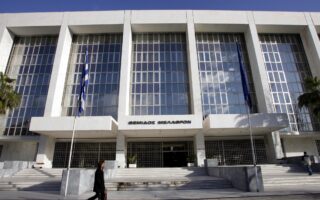Supreme Court report finds no link between EYP, Predator surveillance

The 300-page report by the deputy prosecutor of the Supreme Court, Achilles Zisis, has only assigned criminal responsibility for the extensive wiretapping of phone conversations of various people including politicians and journalists to the companies that had the illegal Predator software, and not the National Security Service (EYP) or any other government agency (the Hellenic Police [ELAS] or Anti-Terrorism).
The conclusion of Zisis, who conducted the investigation for more than nine months, sparked vehement political criticism even before it was made public.
Indicatively, the Committee on Institutions and Transparency will meet Friday morning in Parliament to address concerns from opposition parties.
The report revealed that 28 targets of Predator surveillance had been monitored from time to time by EYP.
According to the finding, this percentage, 24% of the total number of identified Predator victims (116 in total), does not lead to the conclusion that there was a joint EYP-Predator surveillance center.
The report essentially places the entire criminal responsibility for the interceptions on four people, legal representatives and owners of the companies that were involved, in one way or another, in the operation of Predator software in Greece.
Accordingly, Ioannis Lavranos, Sarah Alexandra Hamou, Tal Jonathan Dilian and Felix Biggio have been assigned criminal responsibility for breaches of the law on telephone confidentiality and personal data.
For all four, on a case-by-case basis, the findings detail that they carried out acts of breaching telephone privacy on 116 occasions, of politicians, journalists and others.
According to the prosecutor, they achieved their goal in two cases – journalist Thanasis Koukakis and Artemis Seaford, who both opened the malware and were monitored.
As for the other 114, including PASOK President Nikos Androulakis, the finding says they were victims of attempted surveillance as they did not click on the relevant links.
However, victims’ lawyers claim that there are others who clicked on the relevant link and were subjected to surveillance, including former minister Christos Spirtzis.





